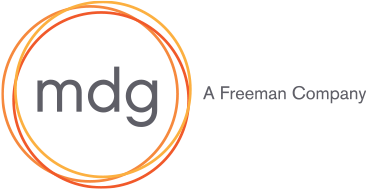
Success Starts Here! Content is king! Keep calm and …
Are your eyes glazing over yet?
Jargon is pervasive in marketing — and event marketing is no exception. Usually, you know it when you see it: If the phrase offers the ring of elevated importance but little recognition in the “real world,” odds are it’s just that. At best, jargon runs the risk of being too vague for “outsiders” to latch onto. At worst, it creates a thick stew of business buzzwords that leaves a bad taste.
When jargon is easy to identify, it’s easy to remedy. But what about the offenders hiding in plain sight? Many of the event industry’s seemingly neutral terms, such as “exhibitors,” “booths” and, more recently, “hybrid,” are being perceived in a negative light by today’s newest crop of attendees, according to Ken Holsinger, SVP Strategy at Freeman. To create compelling messages with tangible meaning for our audiences — who are growing younger by the day — the time is right to rethink our approach.
New Audiences, New Preferences
Freeman’s Q1 2023 Trend Report revealed there’s been a paradigm shift since 2019: In a span of only 18 months, the average age of B2B event goers dropped from 51 to 45. Holsinger puts this in clear perspective: “We have never seen a shift this dramatic in all of the years of tracking these benchmarks.”
With the arrival of these “Next-Gen Event Goers,” which includes an influx of both millennials and Gen Z — not to mention new post-pandemic mindsets among many returning attendees — we’re seeing new preferences for experiences and marketing approaches emerge. In analyzing this shift, Holsinger is listening to how audiences are talking about events now, identifying which words they’re using to reference events in positive terms, as well as the words trending negatively.
Make no mistake, audiences are feeling overwhelmingly positive about our industry. The recent Freeman survey — which included 2,027 participants who fall into the Next-Gen Event Goer category — garnered attendee sentiments like “excited,” “eager,” “necessary” and “engaging” in response to in-person events.
What they’re not saying? Bread-and-butter industry terms such as “trade show,” “exhibits/exhibitors,” “education” and “booths.”
At first glance, it may seem like we’re speaking a common language with our audiences, but consider this:
- Are they more likely to tell colleagues they’re going to a virtual event or attending an event online?
- Will your attendees be more excited to explore hot new products or visit the exhibit hall?
- Are they interested in trade show education or conference learning and content?
Listen to your audience and the answer will become clear. If we want our message to resonate with attendees, we must speak their language — not expect them to speak ours.
Words Matter
Cautioning against the pitfalls of “inside baseball” terms in marketing copy is nothing new at mdg. Phrases like “exhibit floor,” “hybrid formats,” “virtual events “and “education sessions” may roll off our tongues and provoke instant recognition for event professionals, but they can be ambiguous, intimidating and even off-putting for attendees who realistically spend little of their year focused on events.
Of course, traditional terms do have their time and place. Promoting exhibit space to companies? “Booth” says it clearly and succinctly. Adding “exhibitors” in your website navigation? Go for it! But when marketing those exhibitors and booths to audiences, that’s when the conversation turns to benefits: exploring trends, building partnerships and hands-on discovery. The pillars of the event experience may set the stage, but they offer the “what” versus the “why” — and it’s the “why” that motivates action.
Speaking directly to your attendees— echoing their own words — gives them the “in” they need to engage. Not only are they more likely to understand and interact with your content but they’re also more likely to share it. As event audiences trend younger and evolve overall, it’s more important than ever to choose our words wisely.
A version of this article originally appeared in PCMA Convene.


